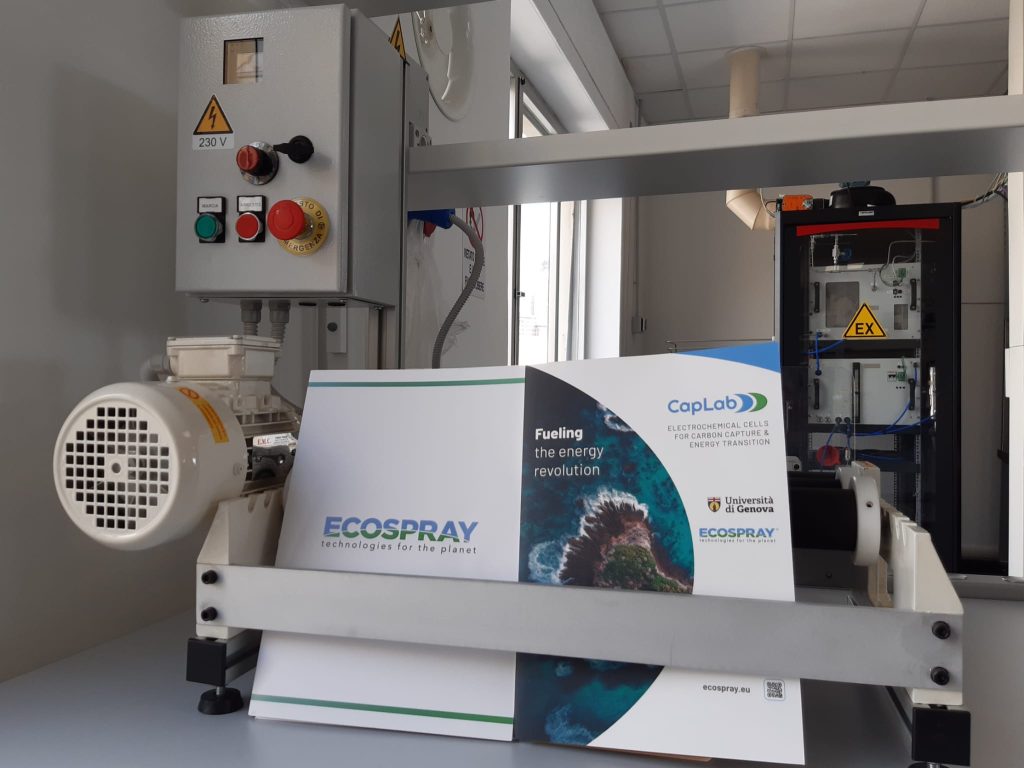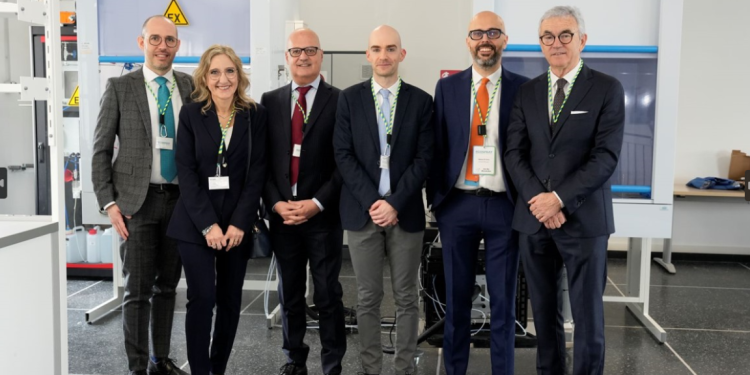The new CapLab decarbonization center, result of a collaboration between the public and private sectors, was unveiled today at Molo Giano, Genoa.
The structure is intended for the research and development of decarbonization technologies with a variety of application possibilities, primarily in the maritime sector. CapLab, managed by Ecospray Technologies and the University of Genoa’s Department of Civil, Chemical, and Environmental Engineering, is a nearly 2 million euro investment.
According to its founders, its strength is precisely the synergy between research and industry, in an alliance that promotes scientific and training progress that can have important positive effects on the territory. The main research areas of the CapLab will be:
- CO₂ capture,
- production of clean energy,
- production and use of hydrogen,
- applications in the naval sector,
- applications in the terrestrial sector (turbo gas, steel mills, etc.)
- integration with renewable sources (bio- LNG, e-methanol).
CapLab programs and projects:
- experimental laboratory for the production and testing of molten carbonate fuel cells
- computer laboratory for cell modeling,
- joint participation in national and international research programs
- participation for research funding
- training (conducting theses and training internships, activating research grants, carrying out studies, research and teaching activities, organizing training activities etc.).
Genoa is proud to host CapLab, a center of excellence for developing technologies for decarbonisation
…said the mayor of Genoa Marco Bucci

Only by pooling our knowledge and research skills will we be able to accompany companies on the energy transition path that will allow them to meet the ambitious emission reduction targets set by world organizations, beginning with the IMO-International Maritime Organization. Today is a significant day, but it is only the beginning; we anticipate seeing the first concrete results of this collaboration soon
…said Maurizio Archetti, president of Ecospray.
According to Barbara Bosio, professor of Applied Physical Chemistry at the University of Genoa, the collaboration will allow for the acceleration of basic research while also kicking off the fundamental transition from research to industrial development.

































































